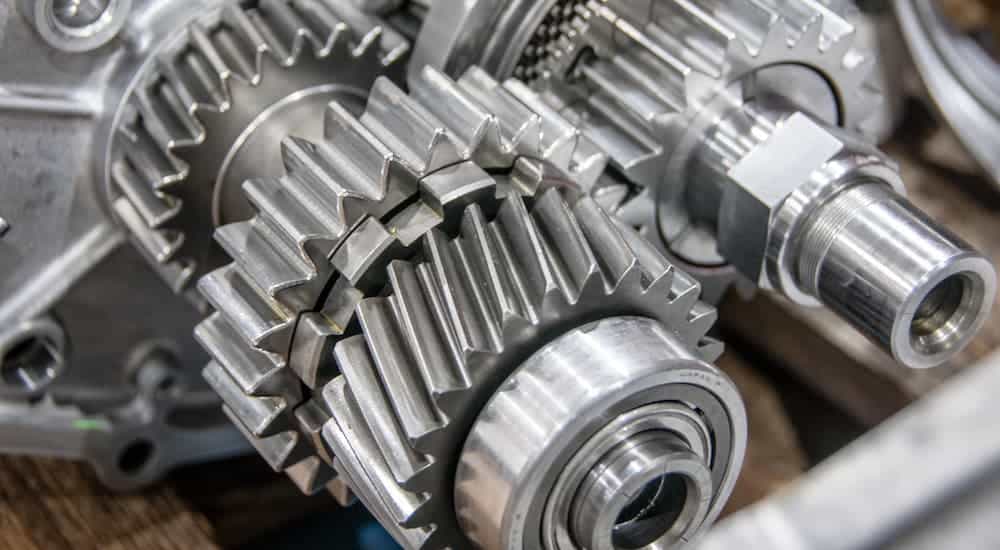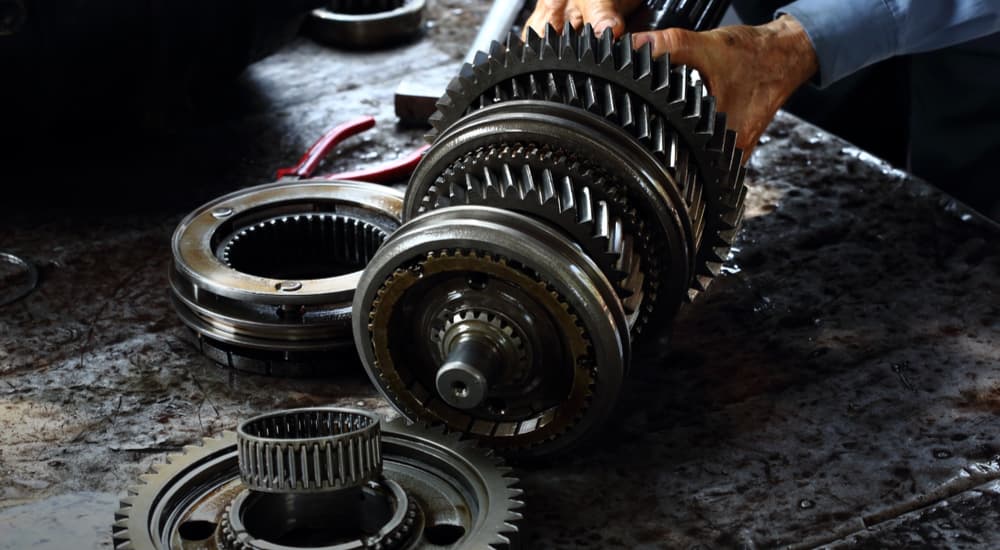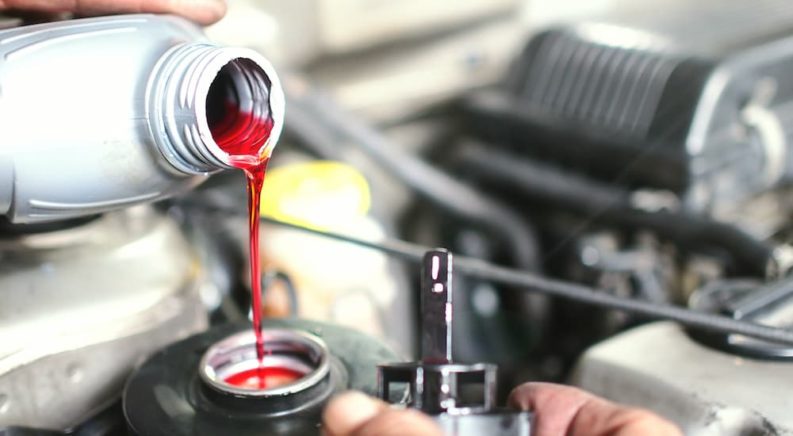If you drive your entire adult life, spending some money on fixing your vehicle is just about inevitable. Just like you’ll need to get some procedures and operations done on yourself over the years, you’ll need to fix things on your vehicle, so be sure to budget for that. Still, you don’t have to simply roll over and accept costly repairs on a regular basis. And just like taking care of yourself, an ounce of prevention is worth a pound of cure when it comes to taking care of your vehicle. There are many parts of your vehicle it’s important to maintain, service, and repair when necessary. However, one of the most costly is transmission repair. In fact, replacing your transmission can cost several thousands of dollars.
Most Americans are not prepared for an unexpected expense like that. But, if your transmission breaks down and you need your vehicle for your work, you literally cannot afford to not fix or replace it as soon as possible. One way to avoid this troublesome predicament is to take the best care of your transmission as much as possible. Looking at the Ford F-150 as an example because it’s such a popular truck, this model’s transmission can go about 150,000 to 200,000 miles without needing replacement when properly cared for. This number will vary depending on how much you drive your truck and how hard you work it, but it would be nice to get as close to those figures as possible, right? Here are ways to extend the lifespan of your truck’s transmission.
First Off, Avoid Some Common Bad Habits
There are healthy habits you can and should take up when it comes to taking care of your transmission. However, their effects will be just about canceled out if you are still participating in some of the worst habits for your transmission.
Towing More Than Your Truck Can Handle
When you first purchased your truck, the salesperson you worked with probably asked you how much you planned on towing regularly. If it seemed like they really wanted to drive the idea home that you should get a truck with the power you need, it was for good reason. Exceeding your truck’s towing abilities can do major damage to the transmission. If you tow more than your truck can handle, this causes fluids to overheat and evaporate, which can put significant stress on the transmission.
Parking Before You’re Stopped
No one is sure when or where they learned this habit, but many people will shift into park before bringing their truck to a complete stop. This habit is rough on your engine. Remember that when you put your vehicle in park, the transmission disconnects the engine from the wheels. But if the wheels are still in motion when you make that change, it can put stress on your transmission. In general, it is a good idea to come to a complete stop before changing directions, too, like suddenly going in reverse or switching from backing up to going forward.
Resting Your Hand on the Gear Stick
This is a bit of an obscure tip, but it applies to many drivers. The gear stick might seem like a natural place to rest your hand, especially since you might need to grab it at any given moment. However, that stick is connected to a selector fork, and that fork is only supposed to interact with a rotating collar for brief periods of time. Keeping your hand on that gear shift can mean you accidentally put pressure on the selector fork, over-engaging the rotating collar and putting strain on the transmission. Just put that right hand on the steering wheel at 10 and 2 to be safe.

Hard Driving
This is a habit that can be difficult to break because it can be connected to your mental state. If you’re an aggressive driver and hit the road with a lot of angst, you might be more prone to hard driving than others. Hard driving includes actions like abruptly changing speed, hard braking, and hard acceleration. Your transmission needs time to make adjustments, and these extreme driving changes can cause premature wear and tear.
Keep Up With Regular Maintenance of Your Transmission and Your Tires
Taking care of your transmission is more than just avoiding bad habits on the road. Like other components in your vehicle, the transmission also needs regular service, which is why it’s important to stay on top of this particular service, as you would with other services like oil changes and tire rotations. This also includes taking care of your tires too.
Stay On Top of Transmission Maintenance
You knew this one was coming, even if you were hoping to avoid it. Yes, maintenance costs money, but it costs much less than repairs and a lot less than replacements. You can usually get a full transmission service for somewhere in the range of $150 to $300. On the other hand, if you skip these services and find yourself paying $4,000 prematurely for a new transmission, you’ll wish you’d just coughed up the couple hundred when you could have.
It is recommended you get your truck’s transmission serviced every 15,000 to 60,000 miles. There is a large variance because it depends on how hard you are on your truck. Where you live can impact this, too. For example, those living on hilly terrain or interacting with extreme weather might need more frequent servicing. You can speak to your mechanic about the best schedule for your model and habits.
During a transmission service, you can expect your technician to replace the transmission fluid (which is important for cooling and lubricating the transmission), take a look at the sump pump or pan, examine the filter and clean/replace it if necessary, and clean the pan as well as replace the pan gasket if necessary.
Tire Maintenance Matters, Too
Not everyone realizes this, but taking good care of your tires is a part of taking good care of your transmission. When your tires are worn down, that puts extra pressure on your transmission. Alternatively, having over-inflated tires can increase the chances of a blow-out, and the resulting shrapnel can also harm your transmission. Be sure to check your tire pressure and keep your tires properly inflated. Go in for regular tire balancing and rotations to ensure your tires are wearing down at the same rate, and there is no extra pressure on any given tire.

Stay On Top of Transmission Care to Enjoy a Long and Happy Journey With Your Vehicle
Your transmission is practically the heart of your truck. Some people would say the powertrain is, but the transmission is the biggest part of that. If you want to avoid financially crippling surprises with your transmission, it’s important to do what you can in your day-to-day life to improve its lifespan, like avoiding those bad habits we talked about and practicing good ones. It’s also important to keep up with the expert-recommended maintenance schedule.
By the way, if you’re wondering what the signs are that your transmission needs attention, some include a bumping or thumping when changing gears, gear slippage, hard shifting, and a delay in acceleration. You can also look at the transmission fluid. Healthy fluid is clear or pink-tinted. When it’s red or brown, it’s time to replace it. If you rely on your truck to make a living or just do the things you enjoy, it’s important to care for the transmission.

